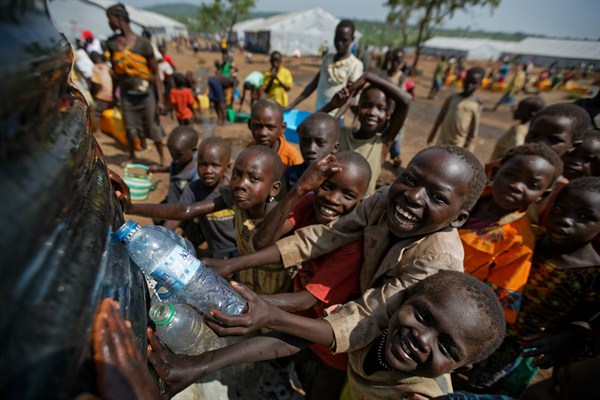Last Tuesday, which was World Refugee Day, the United Nations refugee agency reported three new shipwrecks off the coast of Libya involving vessels carrying refugees and migrants. One of them, a rubber dinghy, “began taking on water just hours into its journey,” and 129 people were missing after it capsized. Another boat, which was carrying 85 people, including many families with children, broke in two before sinking. The U.N. reports that more than 77,000 people have tried to make the sea crossing to Europe so far this year.
The U.N. refugee agency’s Global Trends study for 2016, released to coincide with World Refugee Day, reported that 65.6 million people worldwide were forcibly displaced by the end of last year, more than at any point in the agency’s history. Of that figure, 40.3 million were displaced within their own countries, while 22.5 million had crossed international borders as refugees. A further 2.8 million were asylum seekers.
Alexander Betts of the Refugee Studies Center at the University of Oxford is an expert on the international politics that shape debates on refugees, migrants and asylum-seekers. His research focuses on refugee situations in sub-Saharan Africa, including Uganda, which has vowed to keep its widely hailed progressive refugee policy in place despite seeing its refugee population climb to 940,800 by the end of 2016. Betts was recently in Yerevan, Armenia, for the awarding of the Aurora Prize, a humanitarian award of $1.1 million. While there, he spoke to WPR about the Uganda model and potential innovations in dealing with refugee populations.

